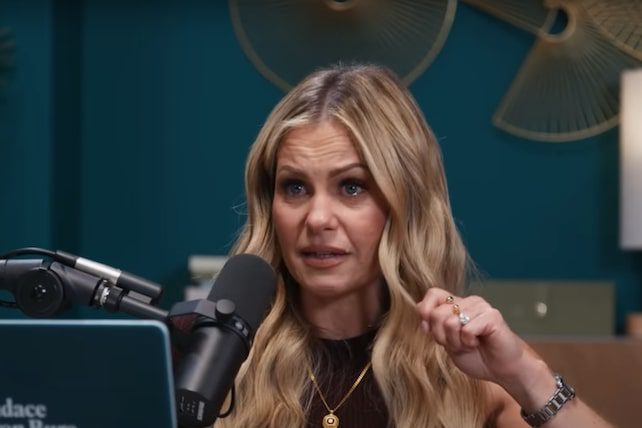Bure said she used to cut out photos of 90s supermodels and put them on her fridge, hoping that she could look like they did. “Yet God…he did not make my body that way,” she said, noting that she is 5-foot-2.
Even though the standards for models are still generally unrealistic, the body positivity movement has since happened, and there is more celebration in culture of different types of bodies. The women agreed there are some beneficial aspects to body positivity, such as the appreciation for a variety of body types, but there are negative aspects as well.
The women did not agree with promoting unhealthiness, no matter what size someone is, and they thought it was odd that some women make changes to their bodies (such as getting butt implants) based on cultural trends.
Natasha expressed appreciation for her father, Valeri Bure, saying he “was so adamant about never placing value on really what I looked like in my body, and I’m so grateful to him for that.” Valeri Bure is a former professional hockey player and the son of Vladimir Bure, former National Hockey League (NHL) fitness consultant and the winner of four Olympic medals for the Soviet Union.
RELATED: ‘Pursued Me Instantly’—Priscilla Shirer and Candace Cameron Bure Share How They Met Their Husbands
It was valuable to Natasha to have a male figure in her life—and an athlete at that—focus on encouraging her to be healthy, not to focus on losing weight. Bure agreed, saying that Valeri encourages her in similar ways.
Natasha pointed out that one consequence when people are negative about their bodies and express those views to others is that “you really don’t realize who it’s affecting.”
“How much have I damaged you or formed your own self-image because of what you saw or heard me say or do—or was there anything positive?” Bure asked her daughter. Bure also mentioned that she (Bure) has struggled with an eating disorder most of her life, which has “been like a roller coaster,” although that struggle has gotten better over time.
“The thing that always confused me is that you were so encouraging about my body,” replied Natasha, saying that her own body was curvier and heavier than her mother’s, particularly when Natasha was younger. Then, she would observe Bure “look in the mirror and say, ‘Oh, I don’t like the way my arms look’” or something else negative, even though Natasha thought Bure was beautiful.
Natasha reiterated, however, that she appreciates how her family has prioritized health, saying that her dad taught her to treat her body like an expensive car, with respect.
“I had a very different upbringing when it came to that,” said Schnacky, saying she believes poor body image can “be a generational curse.”

